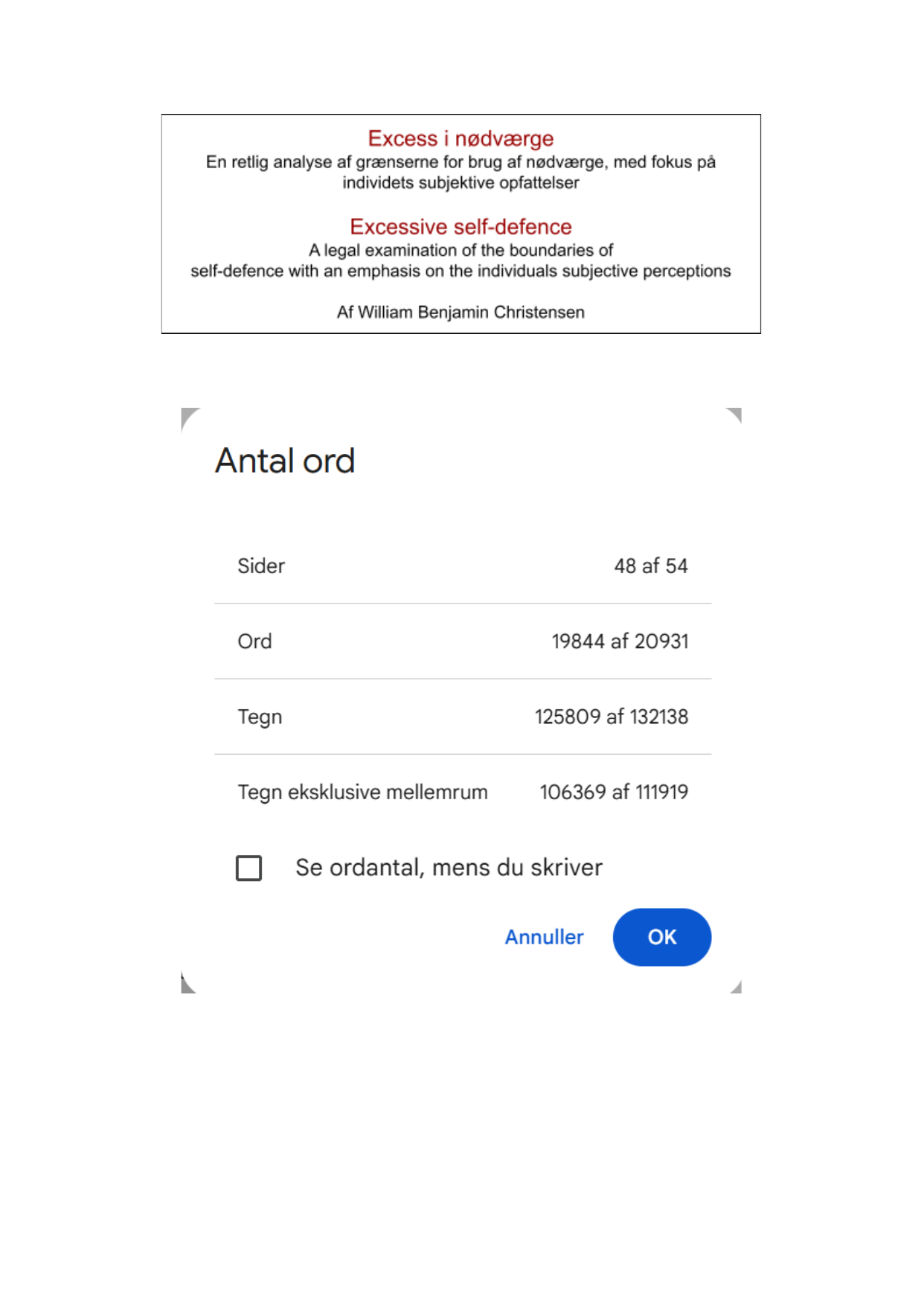
Excess i nødværge
Oversat titel
Excessive self-defence
Forfatter
Semester
4. semester
Uddannelse
Udgivelsesår
2025
Afleveret
2025-05-15
Antal sider
54
Abstract
This thesis examines the legal boundaries for exemption from criminal liability in cases involving excessive self-defence under Section 13, subsection 2 of the Danish Criminal Code. While the first subsection of Section 13 provides the objective criteria for lawful self-defence, the second subsection introduces a subjective exemption, allowing for criminal exemption where the excessive self-defence is reasonably explained by fear or agitation provoked by the attack. The thesis explores the interplay between these two levels of assessment, and focuses particularly on how the courts weigh individual psychological and situational elements when applying subsection 2. Through a legal-dogmatic method grounded in statutory interpretation and supported by a systematic analysis of case law, the thesis seeks to identify the key legal parameters guiding the courts’ discretion in cases surrounding excessive self-defence. The thesis finds that criminal exemption under subsection 2 is granted only in rare and narrowly defined situations, typically when the defendant’s excessive response appears as an immediate and emotionally overwhelmed reaction to a wrongful attack. The thesis focuses on three central aspects. First, it analyses the nature and extent of the excess particularly whether the reaction was disproportionate, or whether it took place too long after the initial threat. The more severe or delayed the excess, the more stringent the court is in accepting subjective explanations. Second, it examines what qualifies as "reasonable" fear or agitation, and how courts evaluate the intensity, duration, and credibility of such emotional states in the specific factual context. Third, it investigates how the defendant’s personal abilities to assess necessity and act proportionally influence the legal outcome. Here, the thesis differentiates between cases involving mentally vulnerable individuals such as people with autism or tourette's syndrome and professionally trained individuals such as police officers and security guards. The findings indicate that Danish courts do not operate with a fixed threshold for invoking subsection 2, but rather adopt a highly discretionary approach based on a balancing of both subjective and objective factors. In cases where the accused suffers from mental impairments that directly affect judgment, there is a tendency to accept wider margins for error. Conversely, individuals with strong professional training may sometimes be held to higher standards, although the practice remains inconsistent. The thesis concludes that Section 13, subsection 2 serves a vital legal function in recognising the psychological reality of high-stress confrontation, but that its application remains limited and heavily context-dependent. Further clarification from the Courts would be beneficial, particularly concerning the legal significance of the accused’s cognitive and situational capacities in borderline cases
Emneord
